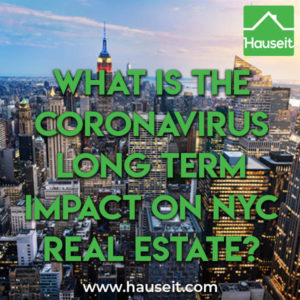Many buildings prohibit open houses altogether, while others have policies requiring two agents and/or policies requiring all guests to be escorted at all times.
We’ve always felt that such rules are incredibly harmful to a seller’s marketing efforts, and ironically these same rules which are presumably intended to improve the safety and quality of life of owners actually reduce property values in these buildings by making it harder to show properties. That being said, the pandemic will likely catalyze rapid rule changes in many NYC buildings which, despite the long-term harm they may cause to property values, will likely not go away for years, if ever.
More reasonable buildings might not necessarily ban open houses in the wake of Coronavirus, but they may limit the number of open houses permitted on any given day or increase the notice period required for listing agents to request permission from management. The bottom line is that many buildings will increase the red-tape when it comes to selling, and this will harm sellers and create more work for listing agents.






